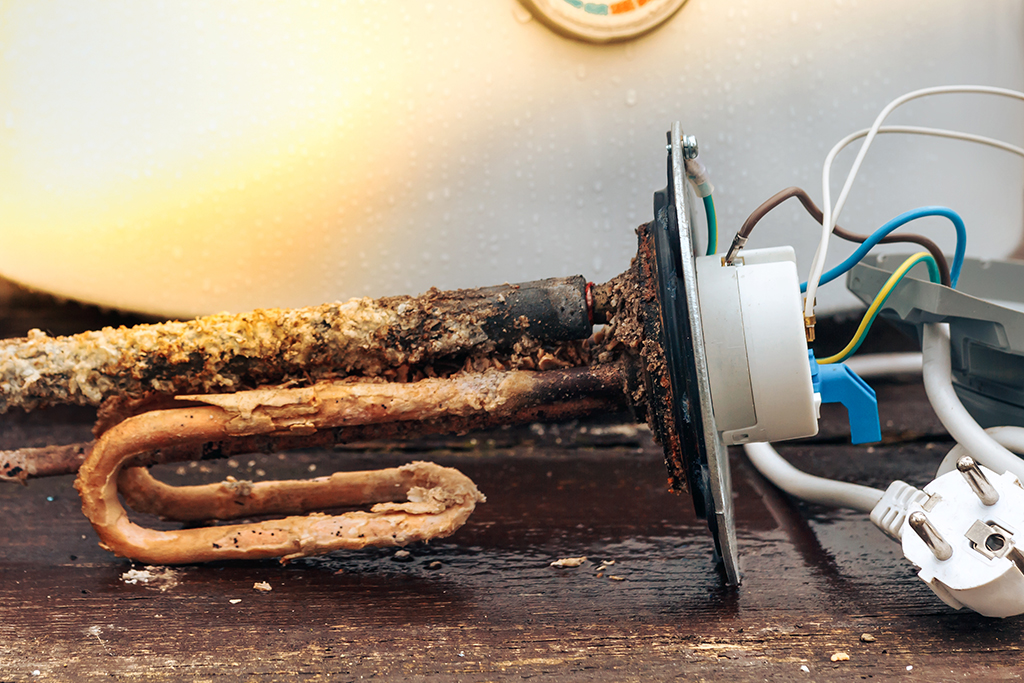
3 Winter Water Heater Maintenance Tips
Photo By Ildar Abulkhanov at istock
Preparing for winter means more than setting up the Christmas tree or brewing a pot of hot chocolate. It also means making sure that your home is ready for sub-zero temperatures, snowstorms, and the ravages of winter weather. Many homeowners remember to have their HVAC unit serviced and their pipes checked and insulated, but a water heater is an appliance that’s often forgotten about.
To prevent a dangerous water heather explosion or an expensive repair, there are a few winter water heater maintenance tips you can use to ensure that you’re ready to go no matter what Mother Nature throws at you.
Replace the Anode Rod
The anode rod, located inside the water heater, prevents the formation of rust in your water. It’s often made of a steel core surrounded by zinc, magnesium, or aluminum. It performs its rust-preventing function by reacting and corroding in place of the rest of the metal parts in the tank.
If you were to take a closer look at your anode rod, you’d notice that it’s covered in corrosion, which means it’s time to replace it with a fresh one, to protect the working mechanisms of your tank. The typical rule of thumb for replacing this part is every 3 to 5o years – so if you can’t remember the last time your plumber replaced it, then it’s definitely time to have it checked!
Insulate and Flush the Water Tank
Insulating your water heater’s tank and the pipes surrounding it not only helps reduce your energy bills but also to reduce the chances of winter freezing damage. You can use a foil insulation blanket to wrap around the tank or consult your local plumber for their advice. If you have a gas water heater, take care to avoid wrapping insulation around the pilot light and ignition!
Another thing that you can do to help your water heater function better this winter is to flush the water tank. Over the course of normal operations, the water heater’s tank will begin to accumulate sediment at the bottom. This isn’t as much of a problem in the summer months when people typically use less hot water, but over time, especially during the winter, the presence of the sediment will begin to affect the efficiency of the water heater and compromise the working of its parts.
The sediment also acts as a layer of insulation between the heating element and the water inside, reducing the amount and temperature of hot water. Plus, over time, the sediment will also hasten the corrosion of the anode rods, causing them to wear out faster.
Make Sure the Temperature Is Set Correctly
Colder weather may make the temperature of your water heater feel less hot, or, there may be more demand in your household for extra-hot water, causing higher demand on the water heater. As the temperature drops, however, the water heater may not be able to make up the difference fast enough, especially if it’s located in the garage or next to an unheated exterior wall (this is why we recommend insulation!).
Your water passes through a series of pipes before it reaches its destination, and can lose several degrees along the way. Many people, therefore, adjust their water heater’s temperature to make sure that they have the hot water they need. Be careful when doing so, however – first make sure that the water heater is in good condition, and can handle the extra output. You can check this with preventative maintenance and a tune-up from your local bluefrog Plumbing + Drain. Then, only gradually increase the water heater temperature, making sure that it’s comfortable for everyone in the family.
Another thing to bear in mind when increasing the temperature of the water heater is the age of the tank, and whether you have had problems with small leaks. If the temperature increases too quickly, pressure may build up in the tank and cause or worsen leaks, reduce the life of the appliance, or even cause an explosion! Make sure that you have your temperature and pressure relief (TPR) valve checked, as this is what will relieve excess pressure by opening automatically.
What If I Have a Tankless Water Heater?
Although some of the preventative maintenance and winter tune-ups that a traditional water heater requires won’t be necessary for a tankless water heater, nevertheless, these units still need regular preventative maintenance and the occasional repair. In fact, tankless water heaters may be even more delicate in the wintertime, even those that are installed indoors. Many tankless water heaters have mechanisms that are built in to prevent freezing, and some even have a secondary layer of protection to cycle the unit on and off to prevent shattering or other damage.
Be sure to insulate the pipes running from the tankless water heater, as these can freeze during the winter. These pipes can easily freeze, and if the freezing occurs close to the water heater itself, some of the parts can become damaged.
Tankless water heaters are also vulnerable to damage if there’s a power outage, common in the winter. Installing a solenoid valve or vales, which are designed for freeze protection, can help prevent damage. These valves are designed to be always open and require an electric current to keep them closed. In the event of a power outage, the valves automatically open and “drain down” the water from the heater. If you aren’t sure how to install these, ask your local plumber for help or advice.
Is It Time for bluefrog Plumbing + Drain Preventative Maintenance?
If you notice that it’s time for water heater maintenance service, don’t put it off. Preventative maintenance from one of our qualified maintenance techs can help determine what your water heater needs to be ready for winter. We’re able to work on all less and traditional water heaters, from the small tweaks and tank flushes to the emergency repairs. Don’t wait until you run out of hot water or you have a leak – bluefrog Plumbing + Drain of West Houston a call today!





;)


